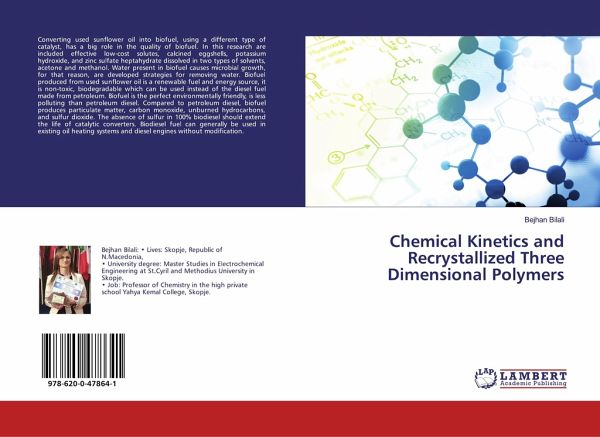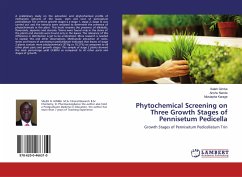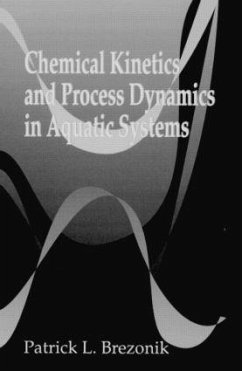
Chemical Kinetics and Recrystallized Three Dimensional Polymers
Versandkostenfrei!
Versandfertig in 1-2 Wochen
29,99 €
inkl. MwSt.

PAYBACK Punkte
15 °P sammeln!
Converting used sunflower oil into biofuel, using a different type of catalyst, has a big role in the quality of biofuel. In this research are included effective low-cost solutes, calcined eggshells, potassium hydroxide, and zinc sulfate heptahydrate dissolved in two types of solvents, acetone and methanol. Water present in biofuel causes microbial growth, for that reason, are developed strategies for removing water. Biofuel produced from used sunflower oil is a renewable fuel and energy source, it is non-toxic, biodegradable which can be used instead of the diesel fuel made from petroleum. Bi...
Converting used sunflower oil into biofuel, using a different type of catalyst, has a big role in the quality of biofuel. In this research are included effective low-cost solutes, calcined eggshells, potassium hydroxide, and zinc sulfate heptahydrate dissolved in two types of solvents, acetone and methanol. Water present in biofuel causes microbial growth, for that reason, are developed strategies for removing water. Biofuel produced from used sunflower oil is a renewable fuel and energy source, it is non-toxic, biodegradable which can be used instead of the diesel fuel made from petroleum. Biofuel is the perfect environmentally friendly, is less polluting than petroleum diesel. Compared to petroleum diesel, biofuel produces particulate matter, carbon monoxide, unburned hydrocarbons, and sulfur dioxide. The absence of sulfur in 100% biodiesel should extend the life of catalytic converters. Biodiesel fuel can generally be used in existing oil heating systems and diesel engines without modification.












